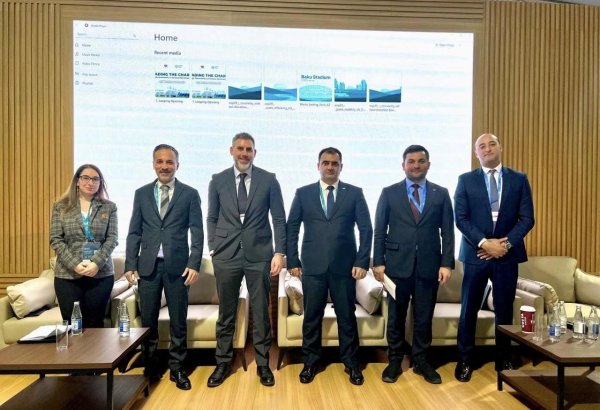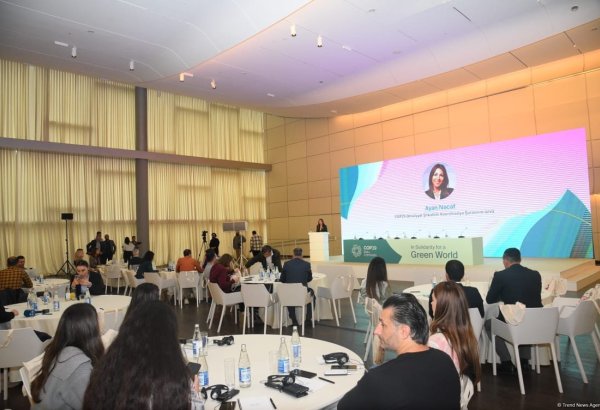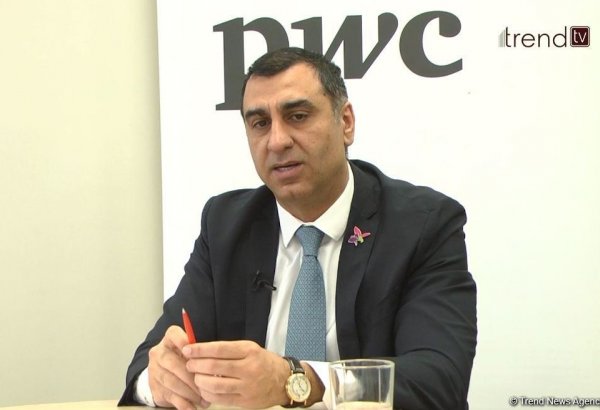BAKU, Azerbaijan, September 23. PwC guides Azerbaijani companies on artificial intelligence (AI), Head of Advisory Services at PwC Azerbaijan Farid Gattal said to TurkicWorld in an exclusive interview.
According to him, the main trends in Azerbaijan are related to the use of AI in high-transaction sectors such as telecommunications, retail, financial services, and the public sector.
"These are industries where large amounts of data are created and processed. The outlook here aligns with global trends, with many companies seeing AI as a way to reduce costs and increase revenues. According to our global Emerging Technologies Survey, more than 55 percent of companies plan to invest in AI, especially in its generative forms. More than 80 percent of organizations also intend to increase spending on technology solutions," Gattal informed.
He also talked about the unique challenges that Azerbaijani companies face in implementing AI.
"Solving the "build or buy" question is the main challenge for Azerbaijani companies. In most cases, companies choose to buy ready-made solutions such as SAP, IBM, Oracle, and others.
However, this is an expensive solution, as most products are purchased abroad. At the same time, creating your own AI product requires significant resources, which are scarce in the local market. Precious are experienced AI specialists, who are very scarce in the country," the head of the department said.
Gattal noted that artificial intelligence is used mainly in three areas.
"Firstly, it is the automation of mundane processes. Artificial intelligence allows us to do this much more efficiently than traditional robotization methods. Secondly, it helps in decision-making based on cognitive analytics, which differs significantly from conventional analytical tools. Here we are talking about advanced analytics in situations where there is a lack of data or it is poorly structured. The third direction is the use of generative AI, which can recreate human behavior in such processes as communication, customer support through chatbots, and other forms of interaction," he said.
Gattal pointed out that PwC is approaching artificial intelligence with a forward-thinking strategy.
"At the strategic level, it has been decided to invest more than one billion dollars over two years in the development of this technology. This implies that we plan to train more than 65,000 employees worldwide, including our office in Azerbaijan. We have planned close cooperation with OpenAI to use GPT-4 technology for both internal processes and customer services. Artificial intelligence helps to optimize our services and increase their efficiency. An important aspect is also the development and updating of internal policies that regulate where and how AI can be used and set the boundaries of its application," he added.
The head of the department emphasized that PwC is currently reviewing its business model.
"PwC provides professional services in three areas: audit, tax consulting, and advisory services. The utilization of artificial intelligence has changed the understanding of the cost and speed of service delivery. We are revisiting the regulations and costing methods used before the introduction of AI. In addition, AI opens up opportunities to develop new products and services, which is also becoming part of our strategy," Gattal noted.
He also added that PwC sees the greatest potential for AI applications in audit and tax advisory services.
"It was predicted a few years ago that the accounting profession could disappear. Artificial intelligence is already helping to make accounting and tax services more efficient, which is becoming an important challenge for companies like ours," the head of the department explained.
Gattal stressed that among the main challenges is the company's readiness to implement artificial intelligence.
"This involves three key aspects: the availability of data needed to train and analyze AI; the availability of resources - expertise and finance; and the existence of policies and legislative regulations that determine how and where AI can be used. For instance, in the jurisprudence, AI is not yet allowed to be used to analyze court cases," he said.
Farid Gattal also talked about how PwC is meeting the challenges of embedding AI in corporate culture and risk management.
"Risk management includes developing clear policies on the use of AI. We are updating our procedures to govern where and how AI can be applied. Risk policies, HR policies, and accounting standards are also being updated. The second important aspect is employee training. As soon as the decision to implement AI was made, we organized a process to inform all participants about the technologies used and how they will be developed in the future," he added.




















